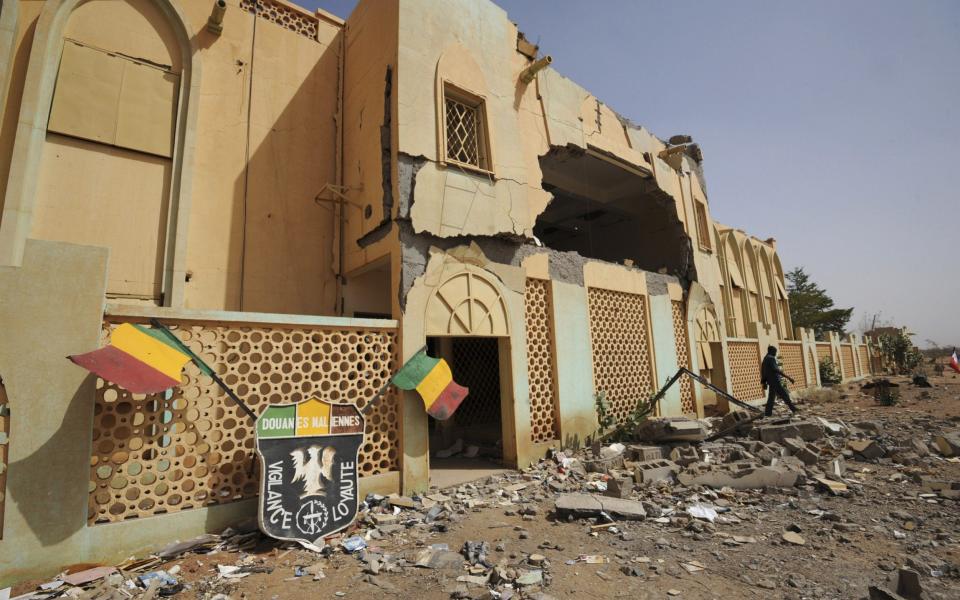UN accuses France of possible war crimes over Mali air strike on wedding

France may be guilty of a war crime for killing a vast majority of civilians in an airstrike on a wedding in a remote Malian village in January, according to the first-ever UN investigation into French military operations published on Tuesday.
At least 22 people were blown up and killed, including 19 civilians and three suspected members of a jihadist group, investigators said. Eight more civilians were injured.
"The group of individuals hit by the strike was overwhelmingly composed of civilians who are protected persons under international humanitarian law," the 36-page report said.
"This strike raises significant concerns about compliance with the principles of the conduct of hostilities," it added, slamming France for not taking enough precautions to ensure no civilians would be killed.
After interviewing 400 people including survivors, witnesses, family members and aid groups, the UN also said a wedding was taking place on the day of the airstrike, which the French government has repeatedly denied.
An individual with knowledge of the report told the Telegraph an earlier version accused French forces of a war crime due to its failure to take adequate measures to avoid the indiscriminate killing of civilians in Bounty.
The phrasing was later adjusted following pressure by the French government, they said.

Dr Hamadoune Dicko, the youth president of Mali’s largest Fulani association and the first to raise the alarm about civilian deaths in Bounty, said the report did not go far enough.
"The United Nations recognised France made a mistake so there should be justice. They should have openly condemned Barkhane and Malian authorities," he told the Telegraph.
"Now it is up to other human rights organisations to finish the investigations and punish the perpetrators of these crimes against humanity. Dropping bombs on a Malian is a crime against humanity."
The victims were all men aged between 23 and 71. Of those who were injured, one had two fingers amputated and another had an open fracture in his thigh.
UN investigators said five armed men, who were suspected of having links to local al-Qaeda affiliate Katiba Serma, were present in Bounty on that day, including one who wore his weapon visibly. The hundred or so other guests were civilians, they said.
"All of this happened because of the presence of that one man who had a weapon," a source told the UN team.
France is facing growing scrutiny over its strategy in the Sahel, where it has been fighting the fastest-spreading jihadist insurgency on earth since 2013. Last month, Paris hinted it wanted to withdraw some of its 5,000 troops in Mali, Niger, Burkina Faso, Mauritania and Chad.

On Monday, Mohamed Bazoum, the newly-elected president of Niger, called France's force in West Africa a "failure" and said a partial troop drawdown would not have a big impact on the ground.
Accusations of civilian killings, extremely rare before 2021, are also mounting against Operation Barkhane. Last week, local officials in northern Mali said at least five civilians were killed in another airstrike.
The French army said in a statement it had ordered the strike "after an intelligence and identification phase" in order to neutralise an armed terrorist group.
But the mayor of a nearby village, a former parliamentarian from the area and a coalition of rebel groups said the strike had killed at least five civilians, including boys as young as 15.
Mohamed Assaleh Ahmad, the mayor of nearby Talataye, told AP the victims were six male civilians from his village between the ages of 15 and 20. He said they were out hunting birds and had a single rifle between them.
While many of the victims were underage, teenage boys are often recruited by jihadist groups to plant improvised explosive devices in northern Mali, several experts told The Telegraph.
France has so far refused to publish images of either strike or to open independent investigations. But witnesses told UN investigators that French soldiers went to the site of the airstrike on January 8, five days after the attack.
French authorities denied any wrongdoing in a statement published on Tuesday and raised concerns over the methodology of the UN investigation.
A statement said: “The Ministry of the Armed Forces maintains with constancy and reaffirms with force: on January 3, the French forces carried out an airstrike targeting an armed terrorist group identified as such."

